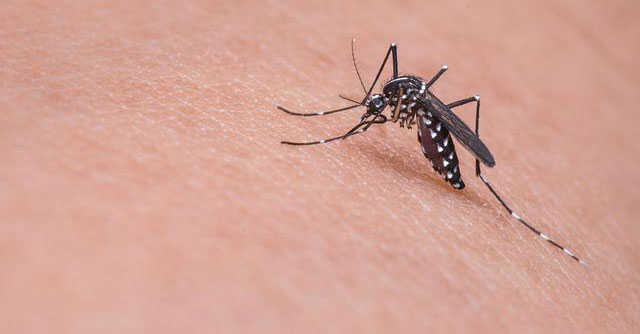
ICMR top lab develops indigenous technology to eliminate mosquito and black-fly larvae; plans in work for export to tropics


In a first, ICMR’s apex Vector Control Research Centre in Puducherry has developed Bacillus thuringiensis israelensis (in short- Bti strain VCRC B-17) Technology that eliminates mosquito and black-fly larvae while harming no other insects, aquatic fauna or mammals.
This is expected to provide a shot in the arm for India’s fight against vector borne diseases such as Malaria, Filariasis, Japanese Encephalitis, Dengue, Chikungunya and Zika among others.
Last Month, the Union Health Minister Dr. Mansukh Mandaviya has handed over Bti technology to state run Hindustan Insecticides Ltd for commercial production and use in India. The HIL also has plans to export Bti biolarvicides products to tropical and sub-tropical regions of the world that have a huge burden of mosquito borne diseases, besides black flies which transmits river blindness in African countries.

Dr Ashwani Kumar, Director, ICMR’s Vector Control Research Centre told Mint: “At VCRC, we have developed indigenous technology for the production of mosquito bio larvicide. The uniqueness is that it kills only mosquito and blackfly larvae and harms no other insects, aquatic fauna or mammals. VCRC’s Bti technology is equivalent to the WHO standard strain of bacteria in terms of its effectiveness. Our Bti B-17 strain is extensively tested and now designated as Indian Standard strain by Central Insecticide Board of India. So far, this technology has been licensed to 21 companies. Recently, VCRC has transferred this technology to Hindustan Insecticides Ltd for commercial production which was facilitated by United Nations Industrial Development Organization (UNIDO) India Office.”
Experts said that for almost a century, mosquito control programmes have relied heavily on chemical insecticides. “Apart from environmental health related concerns, the development of resistance to chemical insecticides in mosquitoes and blackfiles is a major impediment to their control and the diseases transmitted by these vectors. Hence in recent times, the focus has been shifted to the use of biocontrol agents such as Bti,” Dr Kumar said.
This mosquito larvicidal activity of Bti is due to protein toxin complex present inside the bacterium. Bti is ingested by filter feeding when sprayed on the larval breeding habitats. When ingested, bacterial toxins kill mosquito larvae by destroying their gut within 10-30 minutes upon ingestion acts like a stomach poison.

According to the World Health Organization (WHO), vector-borne diseases account for more than 17% of all infectious diseases, causing more than 700 000 deaths annually. They can be caused by either parasites, bacteria or viruses.
Currently, the estimated market size for Bti technology is about 1000 crore per annum in India. Now India is looking to export Bti technology as the tropical and sub-tropical regions of the world have a huge burden of mosquito- borne diseases, besides, black flies which transmit river blindness in African countries.
“The VCRC Bti will make India self-reliant and save foreign exchange and people from vector borne diseases. Under ‘Atmanirbhar Bharat’ initiative of the union government. Bti will help saving foreign exchange on one hand and also earning it on the other by way of exports”, said Dr S. L. Hoti one of the inventors of the technology.

India has reported 10,172 dengue cases with three deaths till May, according to the health ministry. Around 1,554 cases of chikungunya were reported till June this year, while 21,558 malaria cases and four deaths were reported till April.
